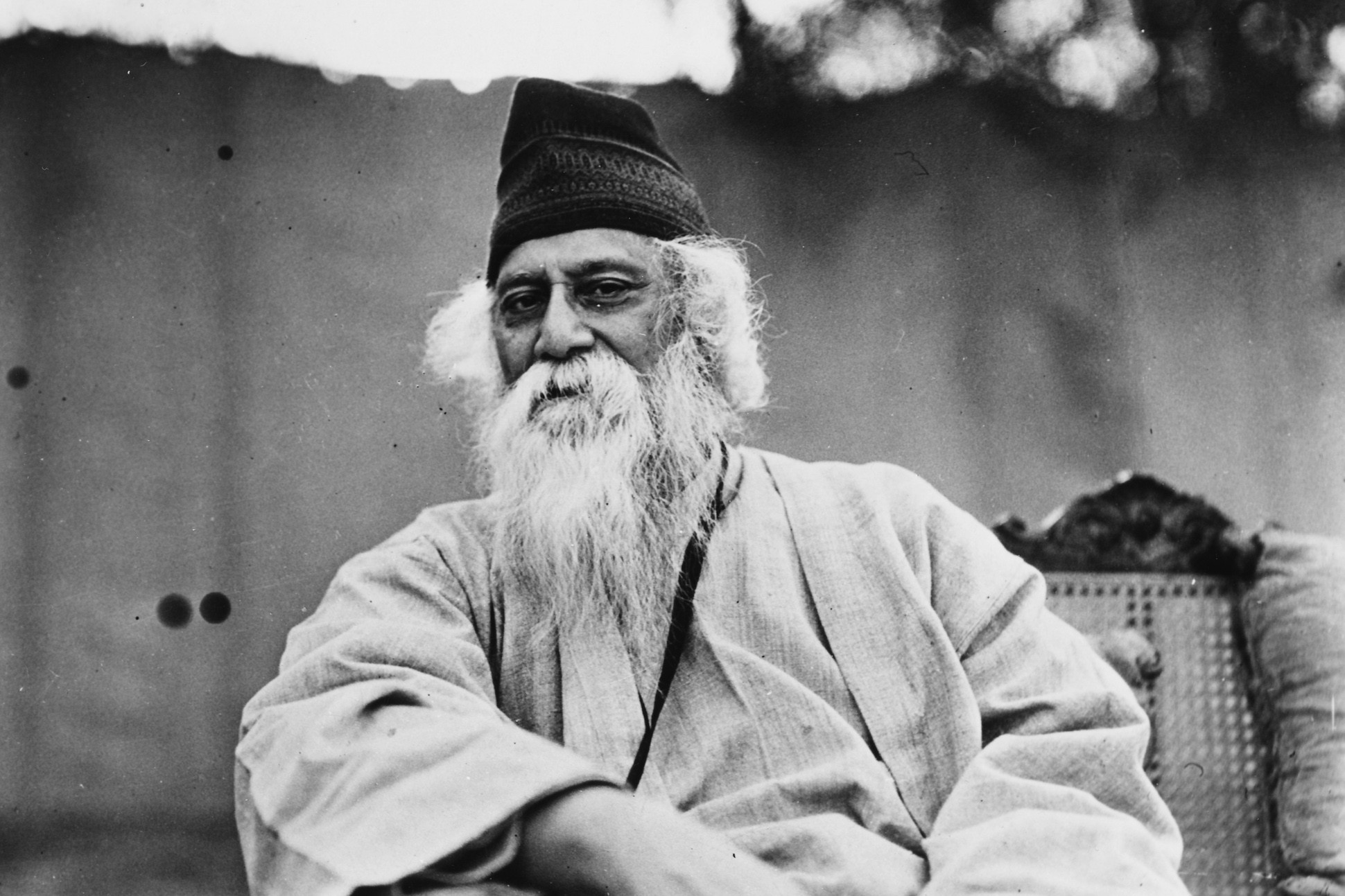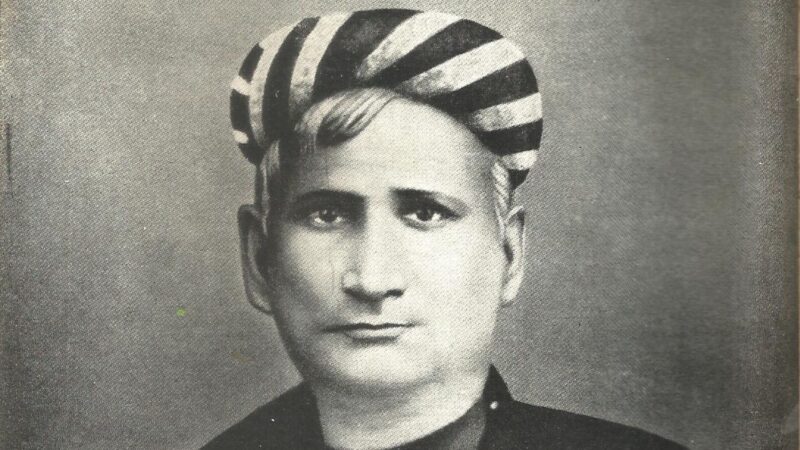Rabindranath Tagore: Timeless Lessons from the Visionary Poet and Philosopher

Rabindranath Tagore: Timeless Lessons from the Visionary Poet and Philosopher
Introduction
Rabindranath Tagore (1861–1941), widely regarded as one of the greatest literary figures in history, was a poet, philosopher, playwright, composer, and Nobel Laureate. Born in the vibrant cultural milieu of Bengal, Tagore reshaped literature, music, and education in India and globally. His profound works inspire generations, celebrating the symbiosis between humanity and nature, spirituality, and universal love. This blog delves into his extraordinary life, legacy, and contributions, with insights into why he remains an enduring icon.
Early Life and Education
Rabindranath Tagore was born on May 7, 1861, in the Jorasanko Thakur Bari (Tagore’s ancestral home) in Kolkata, India. His father, Maharshi Debendranath Tagore, was a prominent religious reformer and leader of the Brahmo Samaj, while his mother, Sarada Devi, played a pivotal role in nurturing the family. Tagore was the youngest of thirteen children, growing up in an environment brimming with intellectual and artistic pursuits.
Tagore’s education was unconventional. He disliked formal schooling and often felt confined by its rigid structure. Instead, he was tutored at home, where he developed an insatiable love for literature, music, and art. His father exposed him to the Upanishads and classical Indian literature, which deeply influenced his spiritual outlook. Later, Tagore briefly attended University College London to study law but returned to India before completing his degree, choosing instead to immerse himself in creative pursuits.
Rabindranath Tagore’s Literary Career and Masterpieces
Tagore’s literary journey began early. He penned his first poem at the age of eight, and by sixteen, he published his first substantial collection of poems, Bhanusimha Thakurer Padabali, under the pseudonym Bhanusimha. Over his lifetime, Tagore wrote thousands of poems, songs, short stories, novels, and essays, leaving an indelible mark on Bengali literature and culture.
Gitanjali: Song Offerings by Rabindranath Tagore
One of Tagore’s most celebrated works is Gitanjali (1910), a collection of deeply spiritual and philosophical poems. The English translation of Gitanjali won him the Nobel Prize for Literature in 1913, making him the first non-European laureate. The poems reflect his quest for the divine, celebrating the unity between man, nature, and God. Renowned poet W.B. Yeats wrote the introduction to the English edition, praising its profound beauty and universal appeal.
Notable Novels and Stories by Rabindranath Tagore
Tagore’s novels, including Chokher Bali (1903), Gora (1910), and Ghare-Baire (The Home and the World, 1916), explored themes of societal reform, gender dynamics, and nationalism. His short stories, such as “Kabuliwala” and “Postmaster,” delved into the complexities of human relationships and emotions, making him a pioneer of modern Bengali prose.

Rabindranath Tagore’s Contribution to Songs and Music
A gifted composer, Tagore created over 2,000 songs, collectively known as Rabindra Sangeet. These songs encapsulate a wide range of emotions, from devotion and love to patriotism and nature’s beauty. Two of his compositions, “Jana Gana Mana” and “Amar Shonar Bangla,” became the national anthems of India and Bangladesh, respectively.
Educational Reforms and Santiniketan
Tagore’s vision extended beyond literature and art to education. Disillusioned by rote learning and colonial education systems, he founded Santiniketan (Abode of Peace) in 1901 in rural Bengal. This experimental school emphasized holistic development, integrating nature, creativity, and spirituality into the curriculum. Students were taught under open skies, fostering a love for learning and exploration.
Santiniketan later evolved into Visva-Bharati University, an international center for education and culture. It attracted scholars and students worldwide, including notable figures like Mahatma Gandhi and Romain Rolland. Rabindranath Tagore’s educational philosophy continues to influence alternative education movements globally.
Philosophy and Spirituality of Rabindranath Tagore
Tagore’s philosophy was rooted in humanism, universalism, and the interconnectedness of life. Influenced by the Upanishads, he believed in a divine essence that permeates all beings. His works often celebrate the harmony between nature, humanity, and the cosmos. Tagore’s worldview transcended religious boundaries, advocating for unity and peace in a fragmented world.
His philosophical musings are evident in essays like Sadhana: The Realisation of Life and The Religion of Man. These works delve into themes of self-realization, spirituality, and the essence of human existence, resonating with readers across cultures.
Political and Social Contributions by Rabindranath Tagore
Tagore’s relationship with politics was complex. While he was critical of colonial rule, he also expressed reservations about militant nationalism. He believed in the power of cultural exchange and mutual understanding to foster global unity. In 1919, he renounced his knighthood in protest against the Jallianwala Bagh massacre, showcasing his commitment to justice and human rights.
Tagore’s social reforms included advocating for women’s empowerment, rural development, and education for the marginalized. He initiated agricultural cooperatives and established Sriniketan, a rural reconstruction center aimed at self-sufficiency and empowerment of villages.

Rabindranath Tagore’s International Legacy
Tagore was a global citizen, forging connections with luminaries such as Albert Einstein, Helen Keller, and George Bernard Shaw. His travels across continents helped spread Indian culture and philosophy, earning him admiration worldwide. His lectures and writings emphasized the importance of cultural exchange and harmony, fostering understanding between the East and the West.
The Nobel Prize for Literature catapulted Tagore into international fame, making him an ambassador of Indian thought and creativity. His works were translated into numerous languages, inspiring artists, thinkers, and leaders worldwide.
Artistic Endeavors of Rabindranath Tagore
In his later years, Tagore ventured into visual arts, producing over 2,500 paintings and drawings. His artworks, characterized by bold lines and abstract forms, were groundbreaking, blending traditional Indian motifs with modernist influences. Exhibitions of his art were held in Europe, earning him recognition as a multifaceted genius.
Influence on Indian Nationalism
Although Tagore’s approach to nationalism was nuanced, his writings inspired the Indian freedom struggle. Songs like “Ekla Chalo Re” became anthems of resilience and self-reliance. Leaders like Mahatma Gandhi and Jawaharlal Nehru drew inspiration from his ideas, integrating them into the broader narrative of India’s quest for independence.

Personal Life and Challenges
Tagore’s personal life was marked by profound joys and tragedies. He married Mrinalini Devi in 1883, and the couple had five children. However, he endured the loss of his wife, two children, and a grandson, which deeply affected him and found expression in his poignant poetry and prose.
Despite his personal sorrows, Tagore maintained an unyielding faith in the beauty of life and creation. His resilience and creative energy served as a testament to his belief in the enduring power of the human spirit.
Memorable Quotes by Rabindranath Tagore
- “You can’t cross the sea merely by standing and staring at the water.”
- “The highest education is that which does not merely give us information but makes our life in harmony with all existence.”
- “Faith is the bird that feels the light and sings when the dawn is still dark.”
- “Where the mind is without fear and the head is held high; where knowledge is free…”
Legacy and Impact of Rabindranath Tagore
Tagore’s legacy transcends time and geography. His works continue to inspire countless individuals, bridging cultural and linguistic divides. Schools, universities, and cultural institutions worldwide celebrate his contributions, ensuring that his vision of a harmonious world remains alive.
In India and Bangladesh, his birthday is commemorated as Rabindra Jayanti, marked by performances, readings, and tributes. UNESCO’s declaration of 2011 as the “Year of Tagore” on his 150th birth anniversary underscored his global relevance.
Conclusion
Rabindranath Tagore’s life and works epitomize the boundless potential of human creativity and spirit. A true polymath, he seamlessly blended literature, art, music, and philosophy, leaving an indelible mark on the world. As we navigate the complexities of modern life, Tagore’s timeless vision of universal love, harmony, and humanism remains a guiding light. Let us celebrate the legacy of this Bengali legend, cherishing his contributions to literature, culture, and humanity.
For More Post about Bengali Legends please visit Bengali Legends
Follow Us for on Social Media: Facebook | Instagram | Pinterest | Twitter | YouTube







